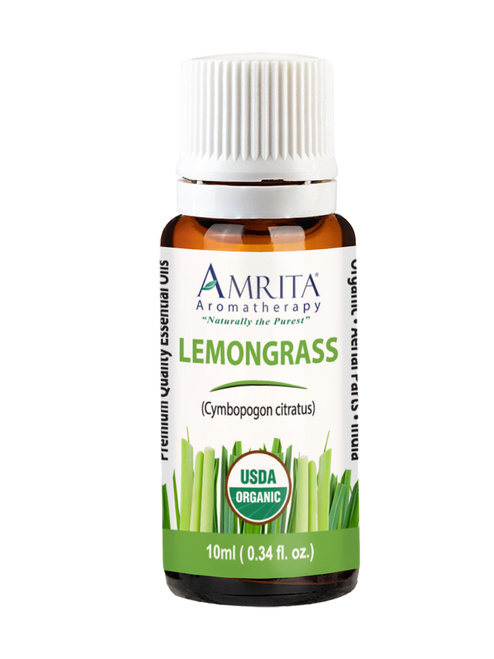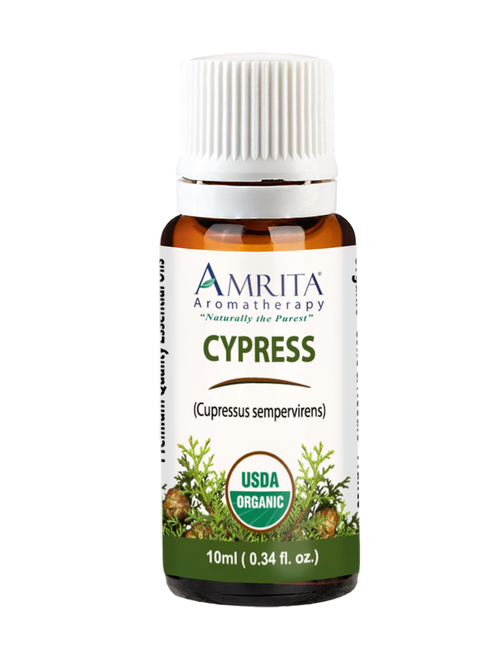- Other Names
- Cymbopogon, Oil Grass, and Silky Heads
- Farming Method
- Certified Organic
- Plant Part
- Aerial Parts
- Country of Origin
- India
- Application Method
- Bath, Diffusion, Inhalation, Massage, and Topical
- Scientific Name
- Cymbopogon citratus
- Extraction Method
- Steam Distilled
About the Plant:
Lemongrass is an aromatic tropical grass that cultivated primarily for culinary uses and belongs to the grass family of Poaceae. Lemongrass is also known by Cymbopogon, a genus of about 55 species of grasses. Lemongrass Oil comes from the leaves or grasses of the Lemongrass plant, most often the Cymbopogon flexuosus or Cymbopogon citratus.
This perennial herb is widely grown in the tropics and subtropics, but can also be grown as an annual in cooler climates. Lemongrass grows in dense clumps that can grow up to 6 feet in height, 4 feet in width, and have leaves up to 3 feet long. They require warm, humid conditions in full sun to thrive. It is not as attractive as many other ornamental grasses but clumps can develop into imposing specimens. Overall, Lemongrass Essential Oil has a light and fresh lemony smell with earthy undertones.
Were It grows:
Lemongrass is native to warm and tropical regions, such as India, Southeast Asia and Oceania. The East-Indian Lemongrass (Cymbopogon flexuosus) is native to India, Sri Lanka, Burma and Thailand. While West-Indian Lemongrass (Cymbopogon citratus) is of a Malaysian origin and is more typically used for cooking, but it is also cultivated in India for Essential Oil production. Extensive breeding programs have developed many varieties of Lemongrass, but few are available in North America. This plant requires a great deal of water, frost will kill or severely damage the plants, which is why Lemongrass doesn’t grow as well in some climates.
Traditional Uses and Lore:
Lemongrass, a valuable plant utilized for practical, medicinal, and culinary purposes, has its origins rooted in various Southeast Asian countries. Lemongrass, a plant with cultural significance in many Southeast Asian countries, has multiple species. The origin of Cymbopogon citratus can be traced back to Malaysia. Evidence of lemongrass cultivation dates back to 17th century Philippine texts. In the early 20th century, Sri Lankan researcher J.F. Jovit began studying the plant and later introduced it to Haiti and the tropical regions of the United States. By 1947, commercial cultivation had begun in Florida and Haiti.
Large-scale Lemongrass cultivation began in India over a century ago, and today the country is the number one exporter of its products. It is used as a medicinal herb in India and it is common in Asian cuisine. In African and South American countries, it is popularly used for making tea. Due to its practical, medicinal, and culinary value, the commercial industry for Lemongrass is significant, and its oil extracts are sold worldwide.
Lemongrass is a widely coveted component of many perfumes, cosmetics, and beverages due to its strong citrus-like aroma and taste. It is also commonly used for soaps, detergents, and insect repellents. Lemongrass is considered a staple ingredient in cuisine of many Southeast Asian countries, namely Thailand, Vietnam, Cambodia, Malaysia, Indonesia, and some parts of China and India. Oil, stems and leaves are used to add a zesty flavor to dishes like curries, soups, sauces, and teas.
The plant is also believed to have medicinal properties, earning it the alternate name of “fever grass”. Some medicinal uses include treatment of stomachaches, digestive problems, fevers, and inflammation.* Lemongrass brewed into tea is said to be antibacterial, antifungal, and an antioxidant.* The entire plant can be utilized, with stems and leaves being harvested at the base for culinary purposes. Stems are edible on their own or as a component of various dishes, while leaves are used fresh or dried as a seasoning. The Essential Oil can be easily extracted by squeezing the leaves. Stems stripped of leaves and roots can be rooted in a glass of water and used to grow a new plant.
Other Facts:
-
-
- Scent: Fresh, Lemony, and Slightly Herbaceous Aroma
- Fragrance Note: Top Note
- Composition: Neral, Geranial, Geranyl Acetate, Geraniol, Limonene, and Terpinen-4-Ol
- Family: Poaceae Family
-
*These statements have not been evaluated by the Food and Drug Administration. These products are not intended to diagnose, treat, cure, or prevent any disease.
- USDA Certified Organic
- Boosts Uplifting Mood
- Soothes Nerves and Muscles
- Supports Positive Digestion
- All About Lemongrass Organic Essential Oil
Lemongrass Organic Essential Oil will have you indulging in therapeutic properties making it a natural remedy to ailments and a potpourri of refreshing aromas. This Essential Oil is derived from the slender yet sturdy grass known for its magical healing powers. Recognized in traditional Indian medicine for its ability to combat fever and infectious illnesses, Lemongrass Oil embraces antifungal, antioxidant, antiseptic, anti-inflammatory, and insecticidal properties.*
The fresh lemony scent of this Essential Oil can soothe aches and pains.* Its vibrant, citrusy aroma elicits the essence of earthy vibes, leaving you feeling fresh and revitalized.* Plus, this oil is ideal for providing natural relief for headaches, migraines, muscle cramps, and stomach aches.* Use it as a complementary ingredient to DIY bath bombs or add a few drops to warm bath water for rejuvenation.* You can also use it in diffusers, room sprays, and homemade cleaning products as a natural air purifier.* Commonly known as Oil Grass, Lemongrass Oil is your all-natural solution to a variety of ailments!
Topical Application (for use on the skin):
|
||||
|
|
||||
|
|
|
|
-------------------------------------------------------------------------------------------------------------------------------------------------------------------
Blends Well With:
-------------------------------------------------------------------------------------------------------------------------------------------------------------------
Safety Precautions
-
- Lemongrass is non-toxic and non-sensitizing.*
- It may irritate the skin and cause a rash.*
- Dilute properly and do a skin patch test before applying more liberally.*
- Avoid using Lemongrass during pregnancy.*
General Precautions:
-
- Use Essential Oils only in diluted form on the skin and never internally.
- Always be careful when using Essential Oils with children.
- Give them only low doses, or better, consult a qualified aromatherapy expert before using.
- Also, use Essential Oils with care and only under the proper guidance of an expert while pregnant or if you have liver damage, epilepsy, cancer, or other serious health problems.
*These statements have not been evaluated by the Food and Drug Administration. These products are not intended to diagnose, treat, cure, or prevent any disease.
Discover the power of Lemongrass Essential Oil! Its incredible anti-inflammatory abilities, when used internally and externally, make it a crucial addition to your wellness routine.* Chronic inflammation is the root of many health problems, including arthritis, diabetes, and even certain cancers.* Luckily, Lemongrass Oil can help ease muscle aches, cramps, and spasms.* It's even known to improve circulation and soothe menstrual cramps, nausea, and irritability.*
An ancient remedy for stomach distress, Lemongrass can help ease gastritis and gastric ulcers.* By simply adding Lemongrass Oil to tea or soup, you can help soothe stomach pains and diarrhea.* Plus, recent studies have shown that Lemongrass Essential Oil can protect against damage in the stomach and potentially even help relieve ulcers.* With its eugenol component, Lemongrass Oil can also ease pain and reduce stomach upsets and diarrhea.*
Lemongrass is a natural detoxifier that works wonders on your digestive tract, liver, kidneys, bladder, and pancreas.* Its natural diuretic properties help eliminate toxins from your body, making it an ideal choice for detox teas or creating your own homemade tea by infusing boiling water with lemongrass leaves or adding drops of Essential Oil to your tea.*
Lemongrass Essential Oil has antimicrobial and therapeutic properties that can help boost your immune system.* Its citral content can reduce the growth of bacteria and fungi, which can help you avoid infections.* Use it in body or foot scrubs to combat fungi like athlete's foot or apply it to a vaporizer to combat airborne illnesses like the common cold.* This is why Lemongrass Essential Oil is an excellent choice for air fresheners and deodorizers. You can customize your own natural fragrance by adding oils like Lavender or Tea Tree. It also naturally deodorizes and sanitizes your home, making it an ideal cleaner.
Studies show that Lemongrass’s subtle scent helps to reduce symptoms of anxiety and irritability by harmonizing your nervous system.* To de-stress, why not make your own body oil infused by adding a few drops of Lemongrass to favorite your lotion. Additionally, Lemongrass Oil is a great option to ease headache symptoms by massaging it into your temples and benefitting from its soothing properties.* Enjoy the refreshing citrus aroma while you unwind and soothe your body and mind.*
The following is a list of conditions which Lemongrass Essential Oil addresses by category:
|
|
|
|
*These statements have not been evaluated by the Food and Drug Administration. These products are not intended to diagnose, treat, cure, or prevent any disease.
Bottles are filled by volume. Some bottle sizes may not be filled to the top, but do contain the volume of oil specified.
|
Click the link below to view GC Analysis |
Click the link below to view CoA Analysis |
|
Click the link below to view Safety Data Sheet (SDS): |












